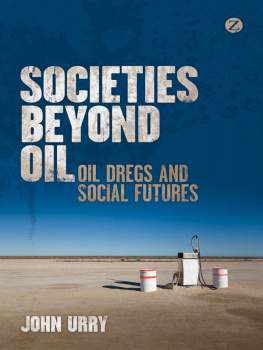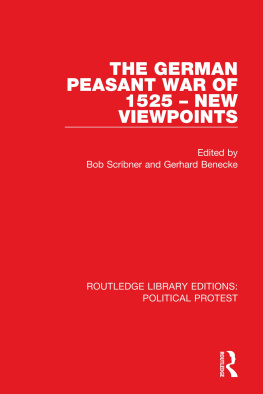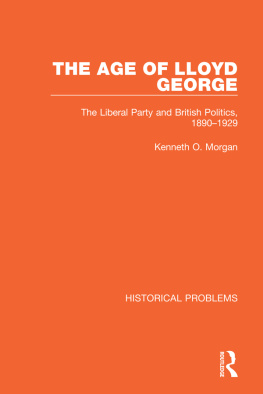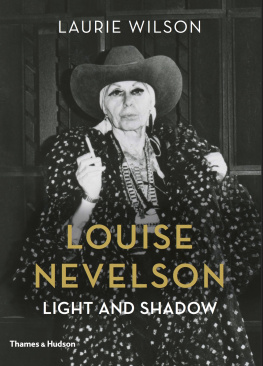MENNONITES, POLITICS, AND PEOPLEHOOD
MENNONITES, POLITICS, AND PEOPLEHOOD
EUROPE RUSSIA CANADA 15251980
JAMES URRY

James Urry, 2006
University of Manitoba Press
Winnipeg, Manitoba R3T 2N2 Canada
www.umanitoba.ca/uofmpress
Printed in Canada on acid-free paper by Friesens.
All rights reserved. No part of this publication may be reproduced or transmitted in any form or by any means, or stored in a database and retrieval system, without the prior written permission of University of Manitoba Press, or, in the case of photocopying or other reprographic copying, a licence from ACCESS COPYRIGHT (Canadian Copyright Licensing Agency), 6 Adelaide Street East, Suite 900, Toronto, Ontario M5C 1H6, www.accesscopyright.ca .
Cover design: Kirk Warren
Text design: Relish Design Studio
Maps: Weldon Hiebert
Library and Archives Canada Cataloguing in Publication
Urry, James
Mennonites, politics, and peoplehood: Europe, Russia, Canada, 15251980 / James Urry.
Includes bibliographical references and index.
ISBN 0-88755-688-4
1. Mennonites-Political activity-Europe-History. 2. Mennonites-Political
activity-Russia-History. 3. Mennonites-Political activity-Canada-History.
I. Title.
BX8115.U77 2006 322.10882897 C2005-907055-2
Publication of this book has been made possible with the generous assistance of the Publishing Fund of the International Council for Canadian Studies, and of the Chair in Mennonite Studies, University of Winnipeg.
The University of Manitoba gratefully acknowledges the financial support for its publication pro-gram provided by the Government of Canada through the Book Publishing Industry Development Program (BPIDP), the Canada Council for the Arts, the Manitoba Arts Council, and the Manitoba Department of Culture, Heritage and Tourism.
To the Memory of
David Gerhard Rempel
(18991992)
and Roy H. Vogt
(19341997)
CONTENTS
FOREWORD
When the late Frank H. Epp first ran for political office in the 1970s, John A. Toews of the Mennonite Brethren Bible College in Winnipeg advised his friend not to become involved in politics. Toews said to me, Frank can do more good as an educator and minister of the Gospel than in federal government. Epp was not elected to the halls of powerno doubt, for Toews, a blessing in disguise. Frank Epp represented a Russian-Mennonite tradition whose members favoured political involvement, whereas Toews still held to the view that Mennonites should not seek governmental office. As members of separate religious communities, Anabaptist-Mennonites were to model a Christian faith and life in a predominantly godless society. According to the earliest Anabaptist confession of faith, drawn up at Schleitheim in 1527, believers were to separate themselves from the world, including sinful pleasures, all forms of violence, and the holding of political office.
While until fairly recently the principle of separation from the world remained an ideal for many Mennonites, from the very beginning of their history, Mennonites still acted politically. Persecuted for their beliefs and forced to flee from place to place, Mennonites negotiated settlement terms and privileges with regional rulers in order to exercise their faith, achieve social stability, and prosper economically. The very survival of Mennonites as a people was largely due to this ability to come to terms with rulers and governments. In his writings Menno Simons had already expressed the opinion that the office of the magistrate is of God and had addressed some rulers as Christians. Mennonites in the Netherlands were among the first of their kind to view a ruler like William I of Orange sympathetically and to seek terms that would benefit them. Similarly, Mennonite merchants close to Hamburg and in the Danzig area needed to establish working relationships with magistrates that would help them to survive as a people and benefit them economically. The Mennonite confessions of faith written after Schleitheim reflect these changed attitudes toward rulers and governments, even if Mennonite leaders continued to encourage their members to avoid political office and political activities.
The Mennonites who later settled in Russia, and even later in Canada and the United States, learned to use government institutions and political processes to their advantage in religious, cultural, and economic affairs. While the Swiss-South German branch of Mennonites in Europe and America remained more withdrawn from the world, Russian Mennonites were less hesitant to become involved in the political life of their surrounding communities. Towards the end of the nineteenth century, some Mennonites in Russia had become politically minded and, at the start of the twentieth century, politically active. This political awareness and involvement extended into the early Soviet period before many Mennonites were forced to abandon their Russian homeland and emigrate to Canada. Those who remained were suppressed by the Stalinist system.
In reading the works of the pioneer Mennonite church-oriented historians such as Peter M. Friesen, David H. Epp, and others, it becomes clear that the Russian Mennonites were not only a people of faith, but also a practical, materialistic, and politically astute people. Yet these historians invariably portray Mennonites as a people who acted religiously in all they did. Even later historians, such as Heinrich Gbrz and others, leave their readers with the impression that the motives, objectives, and plans of Russian Mennonites were primarily religious in nature. They are portrayed, especially during the time of the Russian Civil War, the period of anarchy, and during their preparations for emigration to Canada, as victims at the mercy of political forces they hardly understood and much less could control. Above all, Russian Mennonites were seen as religious refugees fleeing the Soviet Union because their faith and religious institutions were in jeopardy at the hands of an atheistic regime.
Later, academically trained historians, notably David G. Rempel, E.K. Francis, John B. Toews, and James Urry, have begun to revise this historical image of the Russian Mennonites. In their works the one-dimensional religious Mennonite environment of earlier historians has become multidimensional, as the complex social, economic, and political aspects of the Russian Mennonite commonwealth are presented as a more complicated world. Russian Mennonites are now portrayed as a people who were not only concerned with preserving their religious values, but who also were motivated by material and ideological concerns. As a people they acted politically to preserve and advance their religious, cultural, and social institutions.
The first group of Russian Mennonites to emigrate to Canada in the 1870s, known to some as Kanadier, might be considered apolitical. They sought to escape government changes in Russia, including threats to their pacifist beliefs, and their more liberal brethren who were willing to adapt to government demands to serve the state in some organized way and accept educational changes, including teaching in Russian in their schools. In Canada, however, many realized that they could not remain separated from the new democratic institutions and related political processes. Even before the more politically astute refugees from the Soviet Union arrived in the 1920s, some Canadian Mennonites had been active in politics. But the arrival of the new immigrants increased this involvement, first in local government and provincial affairs and later on the national level as well. Some immi-grants, especially during the 1930s, turned their backs on democracy, viewing Germanys National Socialism with sympathy and even dreaming of establishing a separate Mennostaat.
Next page










